When hundreds of thousands of refugees began arriving in Berlin last summer, Manuela and Joerg Buisset abandoned plans to rent out their newly-renovated basement, and instead offered it to refugees in need of shelter.
Ahmed and Nourhan and their daughter Alin came to stay for 10 days, carrying all of their belongings in two small plastic bags. More than a year later, they and their new baby are now part of the Buisset family – though it hasn’t all been easy.
“Ahmed was very insecure and shy, but we thought he was stubborn,” recalls Manuela. “He wouldn’t make eye contact with us, which we thought was so impolite, but he thought it was rude to make eye contact … He later told me he was just completely lost.”
“We are so happy here,” says Nourhan. Manuela went with Nourhan to all her medical appointments, and was at the hospital when baby Laith was born in July.
“At first I was scared,” admits Manuela, “But we really, really like each other now.”
Although they feel at home with the Buissets, the family longs to return to Al Quneitra in Syria – when peace talks were held last November, they began packing their bags in the hope they could go back.
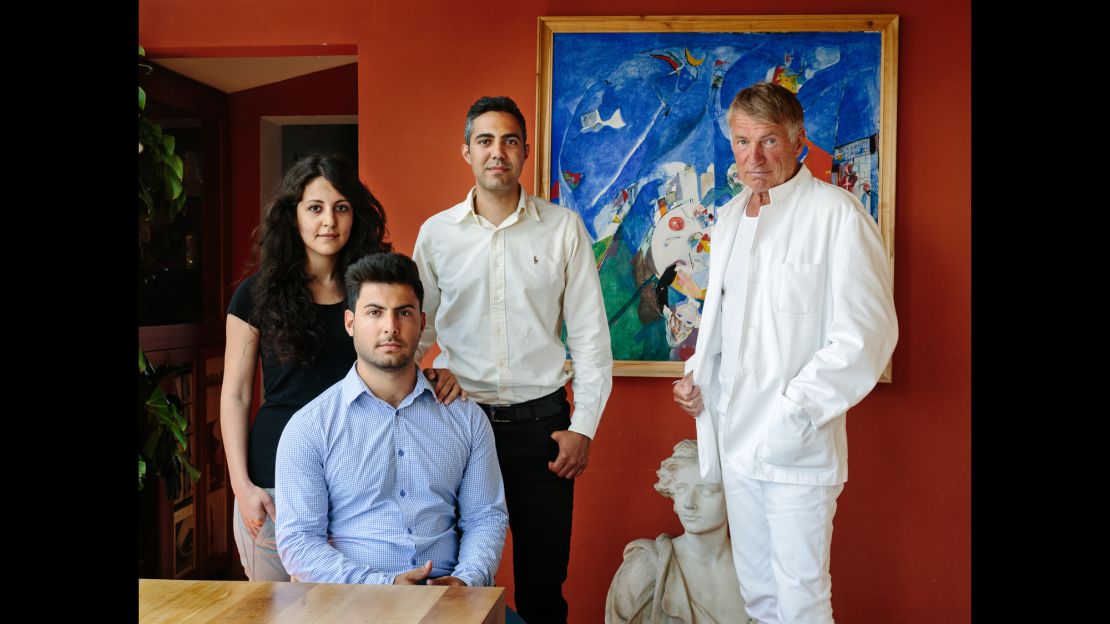
‘We packed whatever we could and ran’
Architect Lars Asklund was so moved by the sight of thousands of refugees arriving in Sweden that he went to an immigration camp in his hometown of Malmo to try to help. While there, he met Waleed Lababdi.
“I asked him three questions: ‘Are you married?’ He said yes. ‘Do you have kids?’ He said no. I looked him straight in the eye and asked: ‘Are you a fundamentalist?’ He said no. I told him ‘OK, I have a good proposal for you.’”
Lababdi and his wife Farah Hilal moved in with Asklund in November 2015; Farah’s brother Milad Hilal joined them last Christmas.
The trio had fled their home in Syria in 2012, first moving from place to place within the country and then, when a missile landed across the street, leaving the country for good.
Now they have a new home with Asklund; the four eat breakfast together every day, and gather for Swedish lessons at the kitchen table each week.
“He cares so much,” says Milad. “He studies with me, even when he comes late at night. We are so lucky to have met him.”
Asklund says he too has benefited from the arrangement: “For me it’s fun. It’s fantastic, I have new friends and I really like them.”
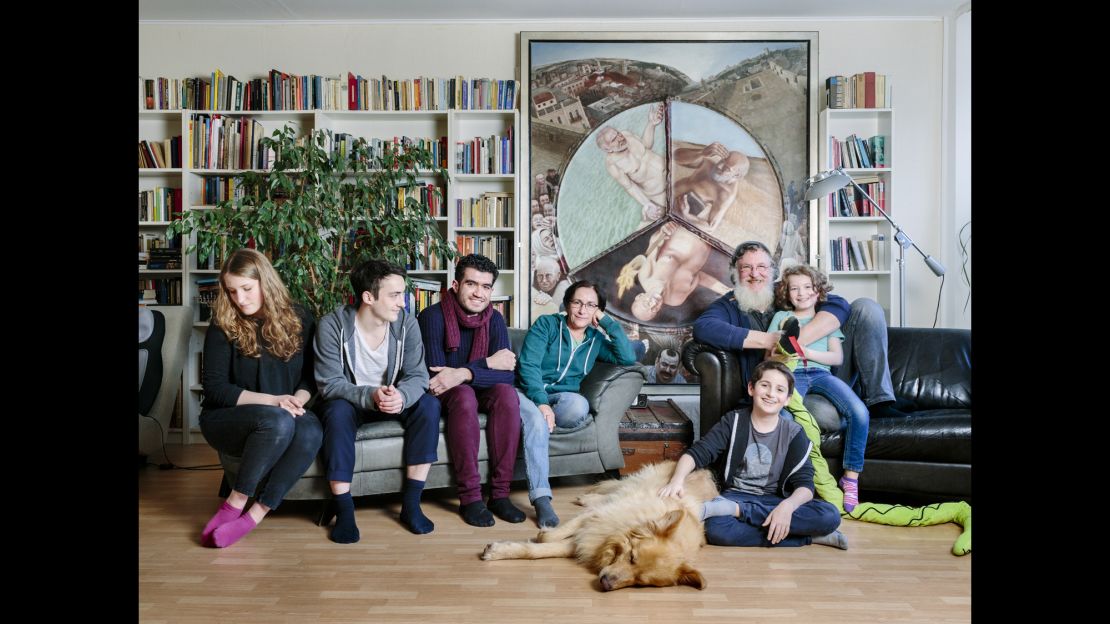
‘Integration is not one-sided work’
The Jellinek family is used to welcoming guests into their Berlin home for the weekly candle-lit Shabbat dinner, but now they have a regular – and somewhat unlikely – participant: Syrian Muslim Kinan.
“It’s wonderful, because every Shabbat we meet new people,” says 12-year-old Joshy. “Kinan brings his friends and friends of our family come too.”
Kinan, 28, from Damascus, has lived with the Jellineks since November 2015, and now feels at home enough to cook Syrian meals for the family.
“We are both minorities in this country,” says Chaim. “One thing we have in common is that our identities are very different from the majority in this society.
“Integration is not one-sided work,” he says. “[It] is not something that we should only ask from people coming into our country, we should ask this of ourselves too. We must accept different food, different culture, behavior.”
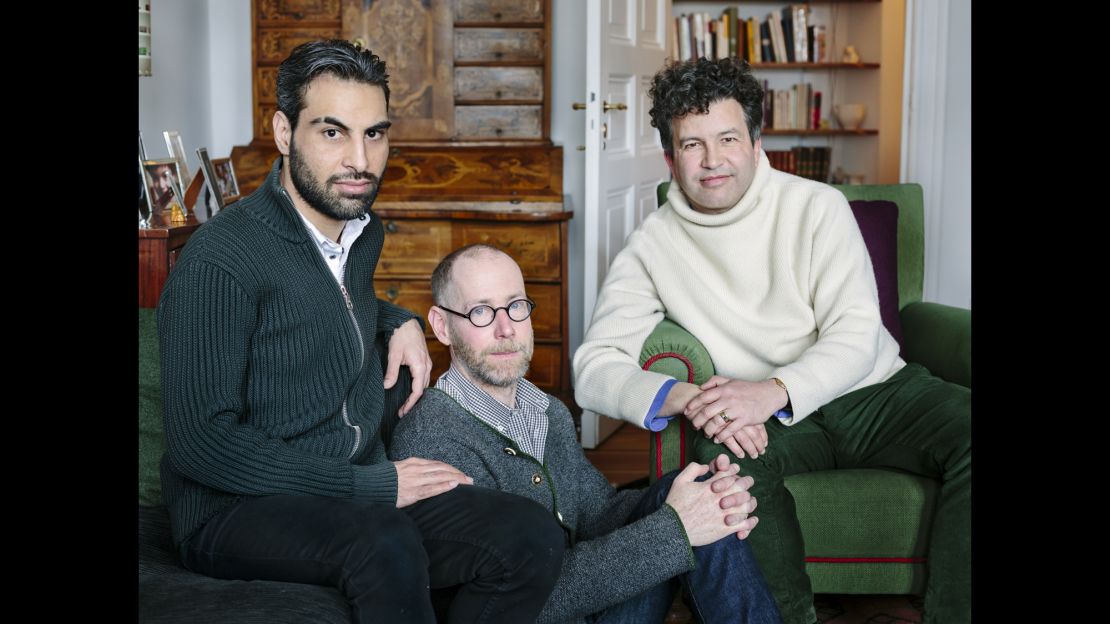
‘To be completely helpless, that was the hardest thing’
Wilhelm and Brian met Syrian refugee Inas on a train shortly after he arrived in Germany; they struck up a conversation with the help of Google Translate, and swapped phone numbers at the end of their journey.
Inas, who was staying in an emergency shelter, reached out to them for help and advice, and asked if he could use them as a local contact when filling in paperwork. His first three-month permit to stay in Germany listed Brian and Wilhelm’s home as his legal address.
“It came as quite a surprise to us of course,” says Brian. “At first we were completely unsure of all the implications, three months is a long time. But we talked with our friends and decided: let’s do it!”
The couple, who have been together for 25 years and married in 2011, were concerned about how he would react to their relationship.”We knew we had to tell him we were gay,” Wilhelm says. “So we showed him our wedding pictures. He shook our hands and said, ‘No problem.’”
Fashion designer Inas, who is originally from Damascus, had to leave behind his thriving wedding dress company when he left Syria, carrying just a few bags. He initially struggled in Berlin.
“Suddenly I was not a grown up man with a life anymore,” he says. “I felt like a child. Brian and Wilhelm helped me with everything … To be completely helpless, that was the hardest thing.”
Now he feels at home in the city, where he hopes to stay for good, and is working with a haute couture dressmaker.
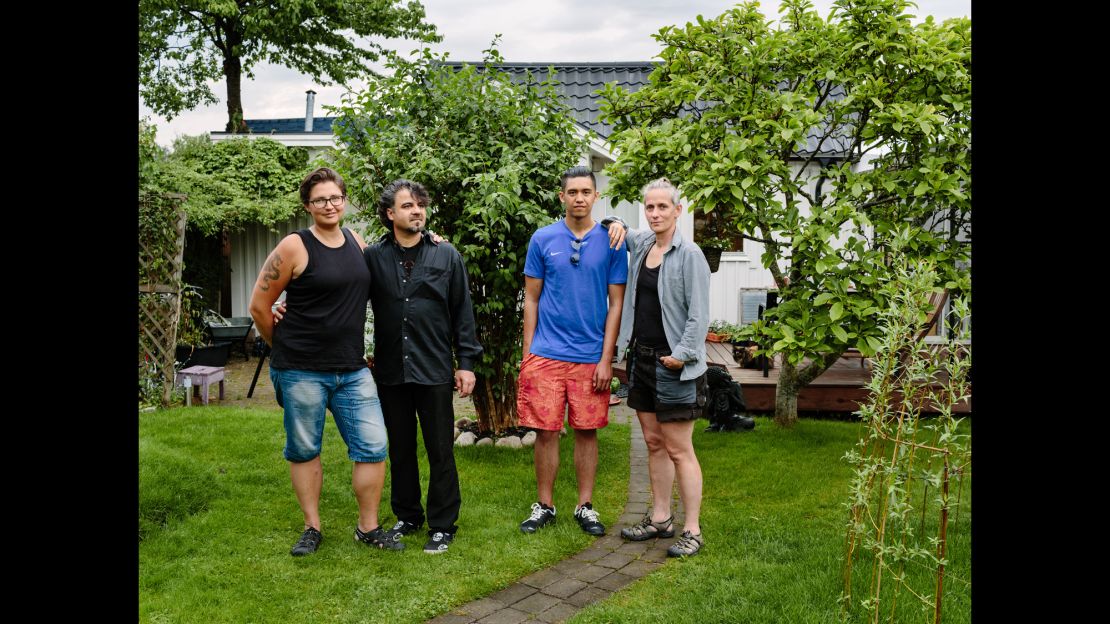
‘They gave me life again’
Devout Muslim Ahmed and his teenage children Ali and Hiba were housed in a church when they first arrived in Malmo, Sweden after fleeing the civil war in Syria.
“They received us with so much love, compassion and care,” says Ahmed. “They were angels.”
Gabriella and Candel met the family while volunteering for charity Refugees Welcome; they offered Ahmed a room in their house – but weren’t sure how he’d react to their relationship.
“We told him we are married. He was very nice and polite but it all got very quiet,” recalls Gabriella. “We thought he might change his mind.”
The 45-year-old was shocked, but says he is hugely grateful to them for taking his family in: “I see how kind they are, I see their humanity, their love and kindness. They gave me life again.”
Candel says she and Gabriella enjoy sharing their home, and that the arrangement is mutually beneficial: “We get an extended family, we get to know about a new language, great food, and culture and they get a fast track into society.”
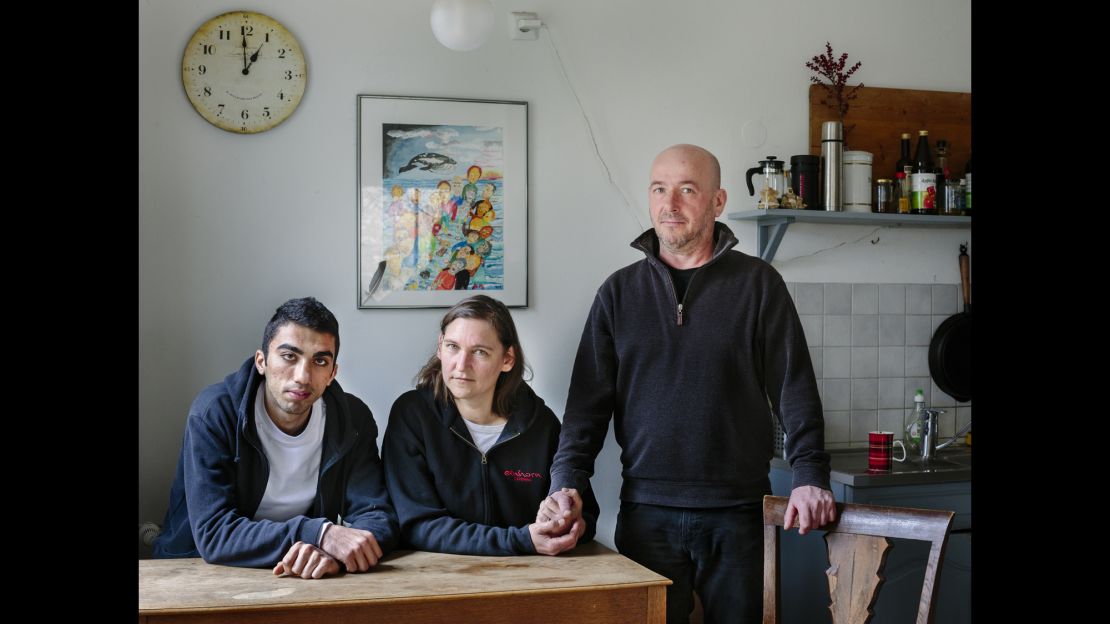
‘We are all refugees’
Berliners Claudia and Tobias grew up in the former East Germany, escaping to the West in the 1980s, and know only too well what it means to flee your home: “At the end of the day, we are all refugees,” says Claudia.
They became friends with Newruz, from Homs in Syria, when he was living in a refugee center in Meissen, Tobias’s hometown, but had to wait nine months before he got his papers and was able to move to Berlin to stay with them.
“This arrangement means we are equals,” says Claudia. “Sometimes I catch myself mothering him a little, because we have children that are his age, but we are really more like flatmates.”
“When we first told my father that Newruz would move in with us he smiled and his eyes sparkled,” Tobias says. “I wasn’t expecting such a positive reaction. He told us that … when he was a child, they had a refugee woman from Poland living with them for a while too. The only difference is that today they come from further afield.”
Newruz, who is taking German lessons and hopes to train to be a nursery teacher, says Berlin feels like a home from home.
“Berlin and Homs are very similar,” he says. “In terms of food, cycling around the streets … Meißen was very different, but Berlin is like my city and I have a few friends here now.”
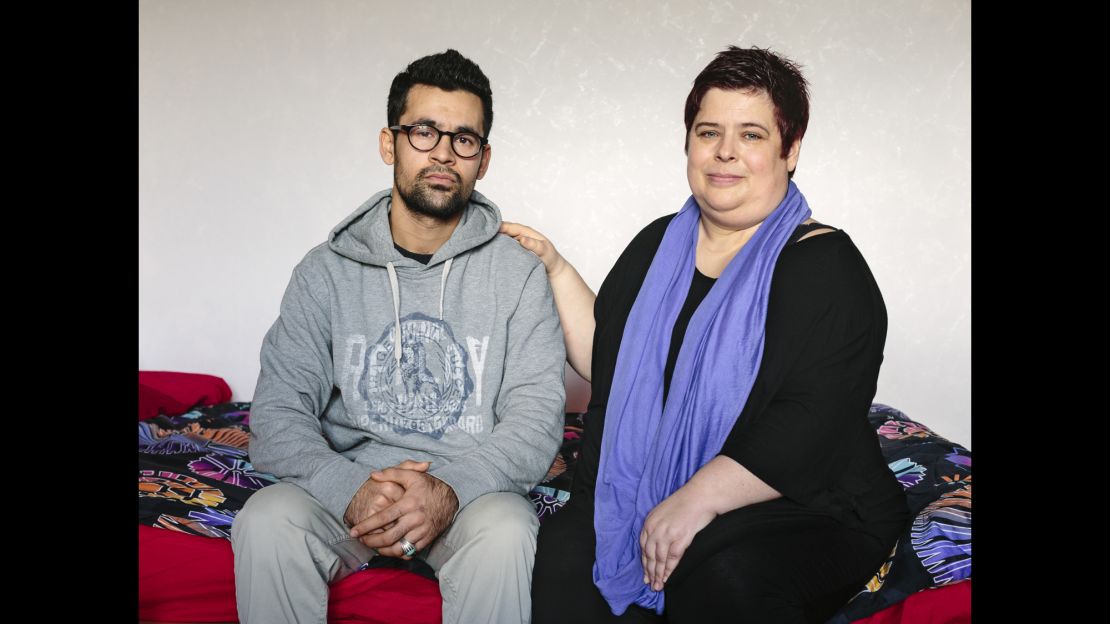
‘My neighbors have not been welcoming’
Uta lives in Berlin’s Marzahn district, she says her decision to take in Afghan refugee Hamid has not gone down well.
“My neighbours have not been the most welcoming,” she says, explaining that each time she adds Hamid’s name to her mailbox, it has been removed, and that she has been told “we don’t want foreigners here.”
Uta, who has two children of her own, is determined to make them change their minds. “He’s my son,” she told those who raised objections. “You just have to get used to it.”
But she says it has not come without a cost: “I had to end friendships with people who didn’t accept what I was doing. It was a shock to see how mean and small-minded people can be.”
Hamid goes to German classes and is working at an integration project where, he says: “I really like to feel useful.”
And for Uta, the arguments with neighbors have been worth it to have Hamid in her life: “I’ve never learned so much in my life since having Hamid here, about religion, food, and other cultures.”
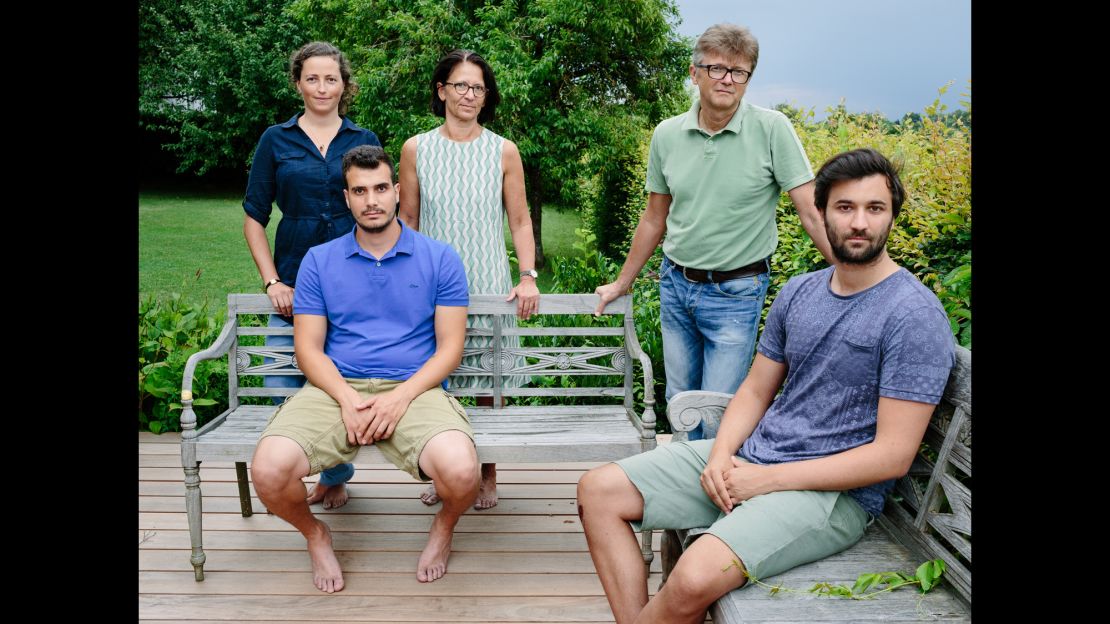
‘Maybe we are setting a good example’
Nawras Ahmadook’s family took Valerie Schamberger into their home and looked after her when she was far from her native Austria, living in Aleppo, Syria to study Arabic.
Ten years on, the Schambergers are returning the favor, welcoming Nawras, a former player on the Syrian national basketball team, to the small town of Bad Schallerbach.
“After everything I went through and everything I lost; my family, my friends, my country, my home, I really had nothing more to lose,” says Nawras. “I was not afraid of getting on that dinghy boat and crossing the sea. Leaving Syria is not a choice.”
When Valerie found out that Nawras had made it to Europe, she phoned her parents and asked them to help him. Her mother Martina drove to the border first thing the next morning.
Now he’s part of the family, Martina says. “I feel like he is my son. He accepts me, a bit different than his mother, he opens up to me a lot, like a friend too.”
“People are looking at us closely,” she says. “Maybe we are setting a good example.”
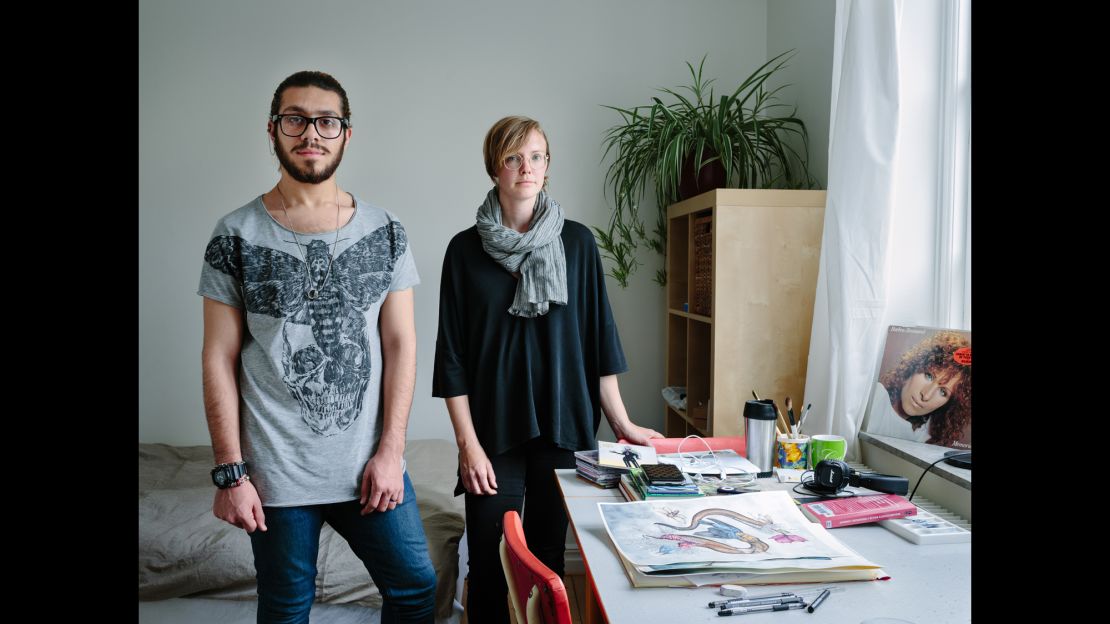
‘It’s magical. I can do what I like’
Alqumit Alhamad fled his home in Raqqa, Syria, when ISIS took control. As a gay artist, he feared for his life: his friends were tortured by the militants, and homosexual men were thrown from buildings in the city.
He traveled to Europe carrying a change of clothes, art supplies and his Lady Gaga, Bjork and Barbra Streisand CDs.
“Guards across Europe always looked at me weird when they searched my bag,” he says. “But I don’t care, I can’t live without my music.”
After arriving in Malmo, Sweden, in February this year, he met Linnea Tell, a single mother and librarian, who offered him a place to stay.
“I can’t tell you how much my life changed and how free I feel,” he says. “Every day I wake up and say ‘Oh my God, I am in Sweden’. It’s magical. I can say what I like, do what I like.
“The people here, the support, the culture, the safety, it’s a whole other world, especially for a gay person from the Arab world.”
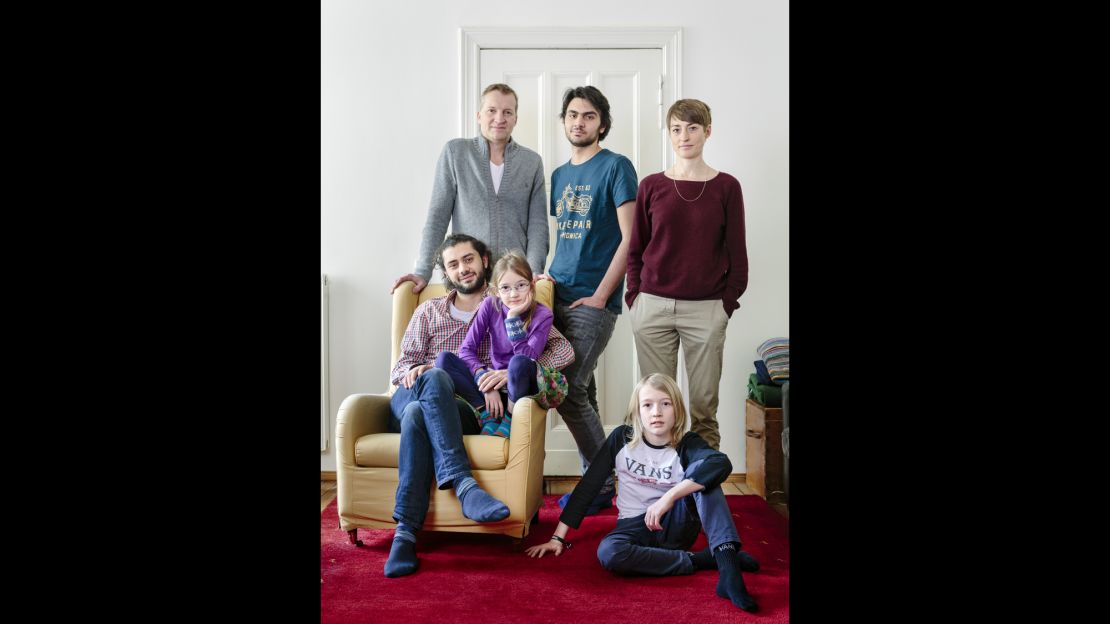
‘You have to take a stand somehow’
Bilal Aljaber spent two years traveling from Syria to Germany, but by the time he got there, he wanted nothing more than to turn around and go home.
Then he met author and bookstore owner Edgar Rai and his wife Amelie. Rai jokes that it was “love at first sight,” and after they got to know each other, the Rais offered Aljaber, 26, their spare room.
“They are like my second family,” Aljaber says. “Anything they can help me with, they do it wholeheartedly. We have a very close friendship and this is one of the most beautiful things that has happened to me.
“I feel I have someone here, someone supporting me, helping me,” he says. “I am not all alone.”
The Rai family has also taken Aljaber’s brother Amr, 17, into their Berlin home.
“There is no way of pretending that this was not everybody’s problem anymore,” Rai insists. “You have to take a stand somehow.”
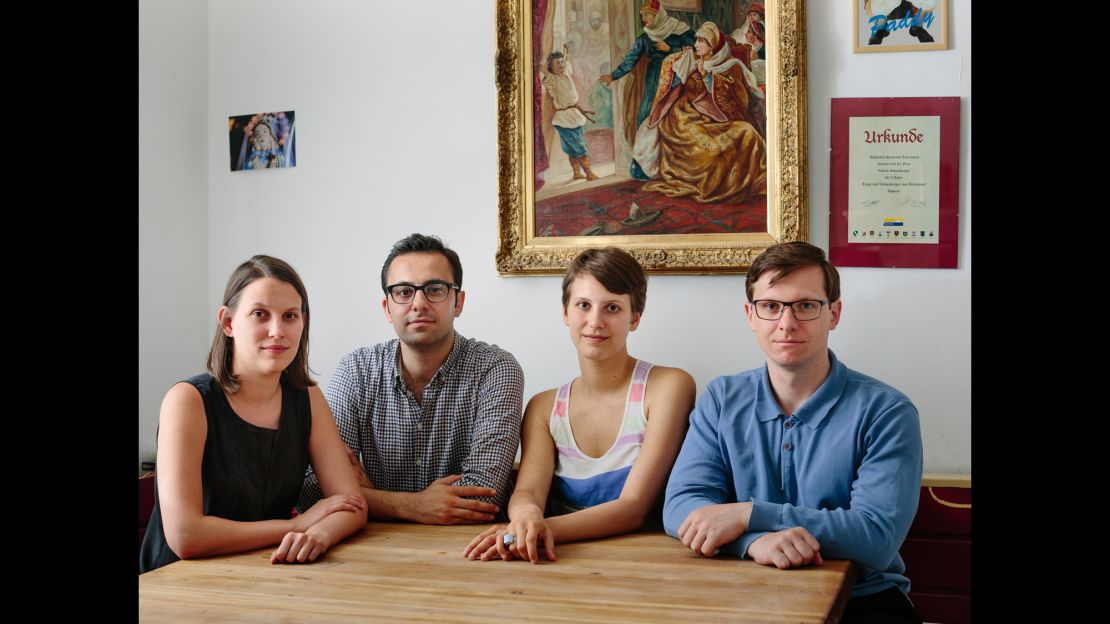
‘He doesn’t need us at all’
Mouhanad Mourad fell in love with Vienna when he stopped for a much needed rest on his long journey from Damascus, Syria – via Libya – to Europe. After days on the road, he decided to stay and make the Austrian city his home.
Determined to make it work, he helped in the kitchen of the refugee center, made friends and started learning German. Six months later, he moved out to live in a shared flat with Valerie Schamberger, Nora Katona and Roman Pable.
And while his flatmates worried that he might need lots of help, they soon found out that Mouhanad, who founded his own support group, called Refugees for Refugees, was already settled.
“Mouhanad knows more people than we do,” says Valerie. “His list of contacts is incredible and we didn’t have to step in – he doesn’t need us at all.”
“He is standing on his own feet very well,” says Roman. “We thought we might have to look after him like a younger brother but we didn’t have to do anything. He’s very orderly, very organized, a very German Syrian.”
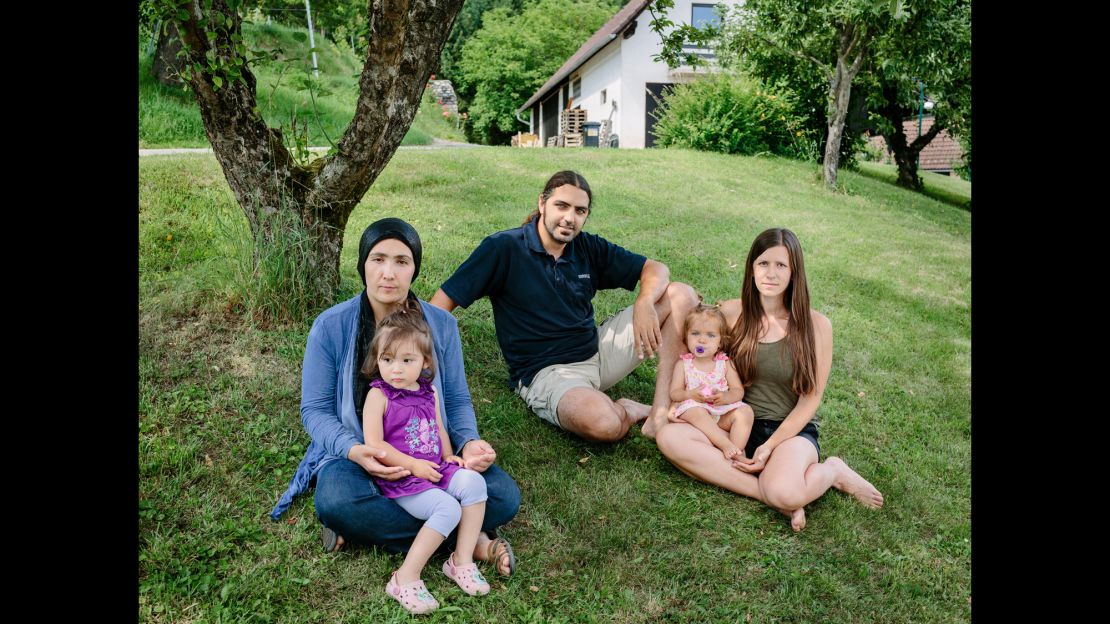
Changing lives – and minds
Nooria was abandoned by her husband when he found out she was pregnant. She says his decision to leave meant she could not stay in her hometown.
“A woman cannot live alone in Afghanistan and raise her own child without a man,” she says, explaining that she would have been forced to hand her daughter to her sisters-in-law.
Nooria and Aysu, now two, fled the country and ended up in Austria, where they were introduced to mechanical engineer Sabine David.
David and her husband Dominique offered the pair a place to stay in their picturesque hilltop home, close to the Slovenian border – despite the reservations of others.
“In the beginning, some people had concerns, telling us we cannot take in a stranger, that they will steal from us,” Sabine recalls. “But then when they met Nooria they changed their minds. Now they say,’It’s not the same with women and children.’”
Nooria is busy finding her feet – and her independence – in her new home, where she is learning to ride a bike to get around. “It makes me feel special,” she says. “I am so happy with the bicycle and the freedom.”
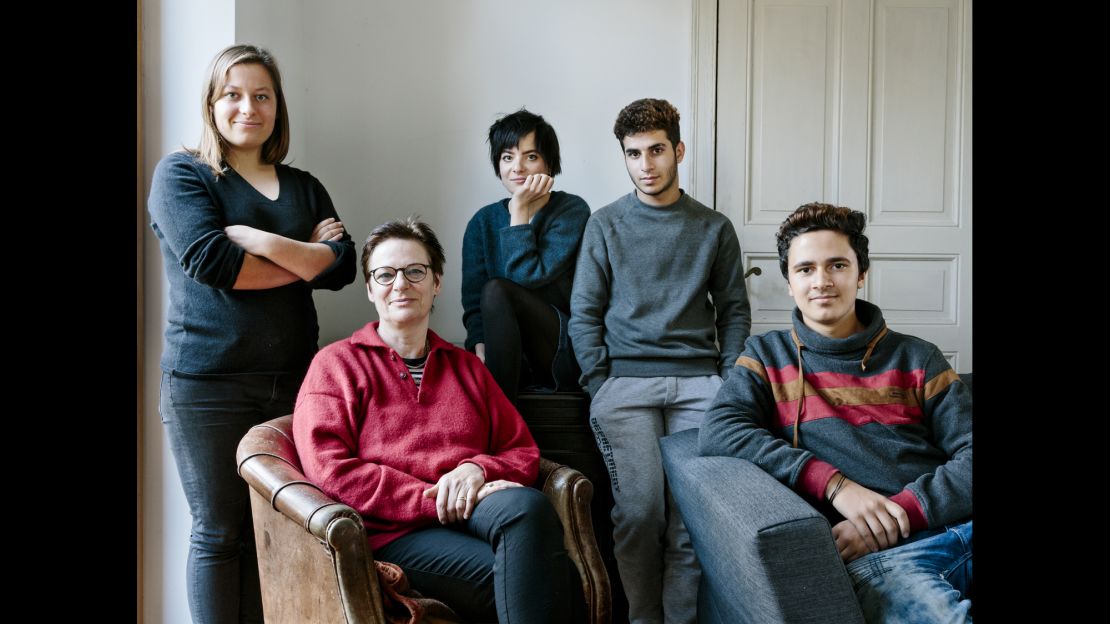
‘They are so full of surprises’
Classmates Juan and Mohammed came to Germany from Damascus, Syria, in October 2015, following in the footsteps of Juan’s brothers, Mzkin and Alan.
Sabine Waldner and her twin daughters Charlotte and Miriam met the older pair while volunteering at a local refugee center, and offered Juan and Mohammed a place to stay.
“It’s amazing how confident they have become since they’ve been here,” says Charlotte. “They were so shy at the beginning.
“They are so full of surprises. We learn so much from each other and we enjoy ourselves. The other day, I taught Momo to ride a bicycle!”
Juan and Mohammed have enrolled at the local high school, and since this photograph was taken, Charlotte and Miriam have moved out of the family home, allowing Mzkin and Alan to move in.
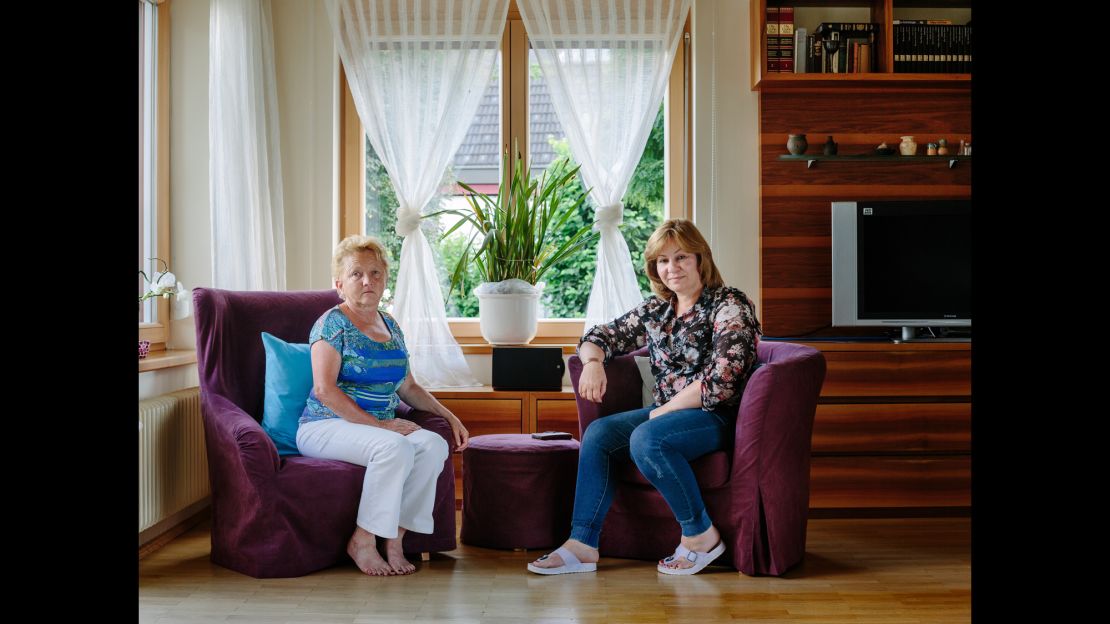
‘I feel like I am living in heaven’
When Margarethe Kramer offered a spare room in her home to a refugee, she was expecting a headscarf-wearing woman with traditional views to move in.
“But I was really surprised when I met Souad,” the kindergarten teacher says. “She is so independent, so open minded, [so] modern.”
Souad Awad, 49, a refugee from Iraq, has been living with Kramer in the Austrian border town of Lavanttal for just a few weeks, but already the pair are firm friends.
“I feel like I am living in heaven now,” Souad said. “Margarethe is amazing – so sweet and her whole family is wonderful. I feel at home. I feel she’s like my sister.”
Kramer, 59, says she is pleased to have someone to keep her company while her husband is away working for much of the week.
“The whole experience enriched my life, with friendship and companionship,” she says.
Aubrey Wade developed the No Stranger Place series in partnership with UNHCR, profiling refugees and their hosts across Europe.




